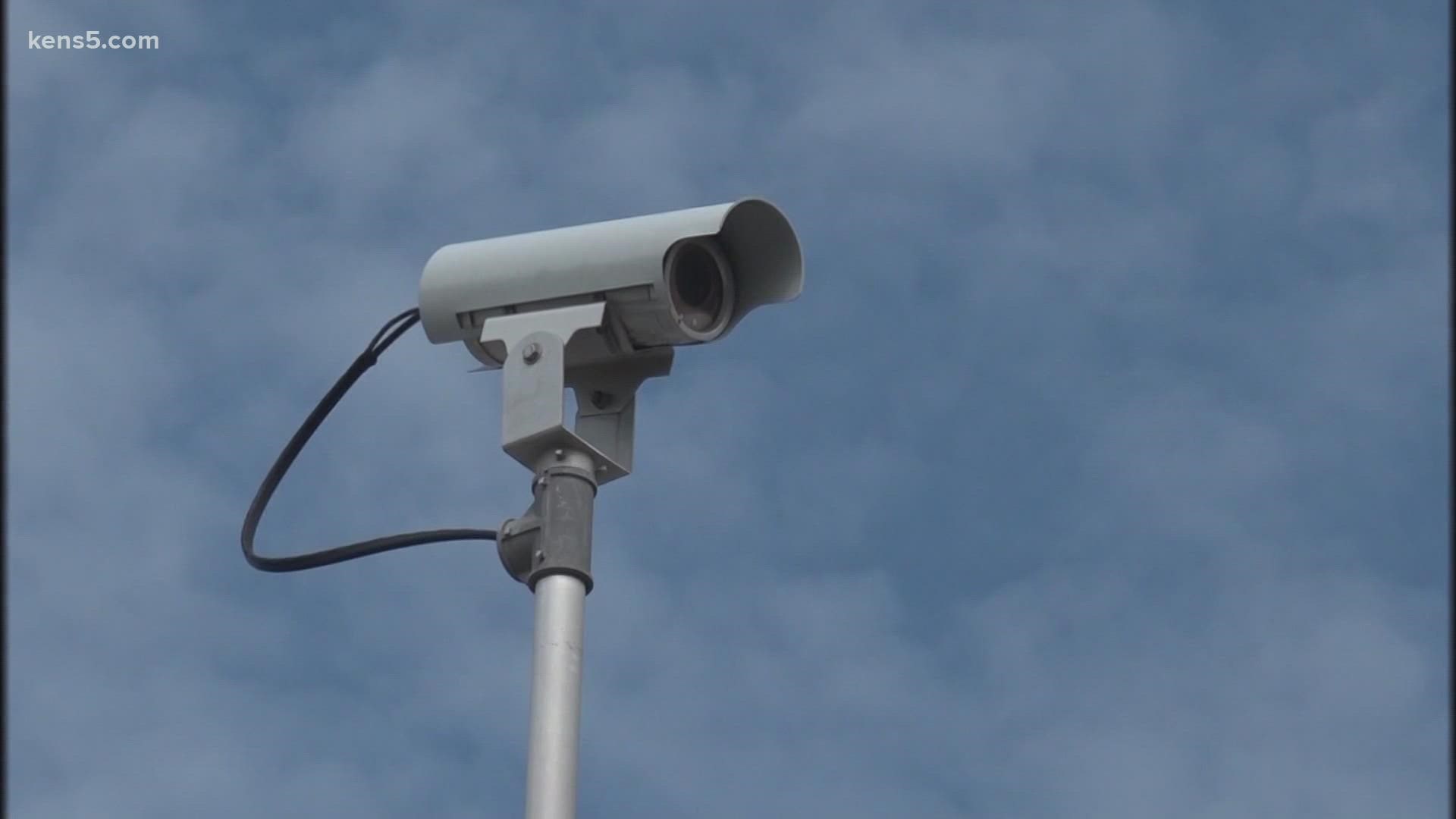BEXAR COUNTY, Texas — Leon Valley is the last city in Texas to be using red light cameras, even though the technology is banned in the the state.
Governor Greg Abbott signed a bill prohibiting the use of photographic traffic signal enforcement systems in 2019. Part of that legislation specified that cities and municipalities with existing contracts would be allowed to let them play out.
That gave the communities of Leon Valley, Balcones Heights, Humble and Amarillo the ability to keep their red light camera enforcement systems up and running.
The loophole
According to Subsections 1 and 2 in Section 6 of House Bill 1631:
"The local authority may continue to operate the system under that ordinance and under the terms of that contract until the expiration date specified in the contract as the contract existed on May 7, 2019; and the photographic traffic signal enforcement system, and any proceeding initiated or civil or administrative penalty imposed after the effective date of this Act are governed by the applicable law in effect immediately before the effective date of this Act, and the former law is continued in effect for that purpose prohibiting the use of photographic traffic signal enforcement systems."
"Current law says you can’t collect," State Sen. Jose Menendez said. "They [Leon Valley] can’t use it against you."
Menendez and State Rep. Philip Cortez, who both represent the Balcones and Leon Valley municipalities, have written legislation that looks to dismantle this "loophole."
“In the dead of night, right before the law took effect, the previous mayor and council [in Leon Valley] at that time passed ridiculous number of year extensions," Cortez said.
According to Cortez, the goal was to allow municipalities' contracts with the red light camera installers to play out so they wouldn't experience any legal repercussion. Leon Valley leaders signed a contract that would keep their cameras up until 2039, something Cortez said no one expected.
"What I wanted to say is these laws are illegal in the state of Texas," Menendez added.
Senate Bill 446, which was authored by Menendez and would have made it easier to void those contracts with red light camera installers, was left pending in committee in the last regular legislative session. Cortez's own legislative attempt, House Bill 167, was referred to the Transportation Committee.
Both bills are expected to be brought up in the next legislative session in 2025.
What about the cameras in Balcones Heights?
Lorenzo Natasi with Balcones Heights said the municipality ended its red light camera safety program on May 24. The cameras are still up, but not active.
Whether people have to pay existing tickets is the question.
Speaking to KENS 5 in June, Natasi said that "at the end of this month, any outstanding citations will be null and void."
Natasi added that safety is a top priority for the municipality, so law enforcement will be in each area where functioning cameras used to sit.
"At the end of the day, running a red light is still illegal," he said.
Despite that, if you choose to run one anyway, you won't be getting a picture of it in the mail anymore.
Unless you live in Leon Valley. It remains unknown why that's the case; Leon Valley officials chose to disregard any media inquiries on this topic.
After sending multiple emails and trying to call different representatives wit the city, KENS 5 received this response from Leon Valley Police Chief David Gonzalez:
"I received your message. I am not in the office today or tomorrow. As I mentioned previously, there is no new information about the red light cameras in LV. All of the questions you were asking have been answered in previous interviews. I will not be available for an interview tomorrow."
Leon Valley's red light cameras will remain up and running through 2039, unless legislation passes to stop it. Until then, it will remain the last city in Texas to have the technology.

